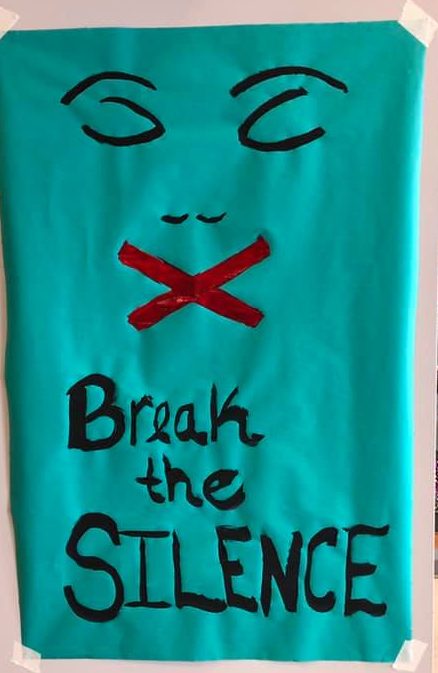News
Domestic Violence Victims Urged to Text if They Can’t Call During Lockdown
By: Claudia Cisneros
Posted on:
ATHENS, Ohio (WOUB) — Domestic violence victims are being urged to text rather than calling the help lines during the Stay at Home order in Ohio due to the coronavirus pandemic.
Kelly Cooke, My Sister’s Place executive director, says they are concerned about what’s happening with victims during these times of mandated isolation due to the health crisis.
“We are seeing a decrease in the number of calls to our hotline. We are assuming that people are home with their abusive partners and not able to contact us via phone calls. This is concerning, as we are aware of the potential increased danger for victims and survivors at this time.”
Jenifer Seifert, program director for the Survivor’s Advocacy Outreach Program (SAOP), says although it is too soon to document this surge, they know from past experiences that economic stress and social isolation are risk factors to domestic violence.
Because of the general sense of uncertainty, Seifert says they expect there to be a little delay in individuals reaching out for resources since under normal circumstances it is already difficult for victims to reach out.
“SAOP and most state-wide advocacy organizations such as OAESV [Ohio Alliance to End Sexual Violence] and ODVN [Ohio Domestic Violence Network] suspect that the continued confinement necessary to combat the COVID-19 pandemic will result in increased abuse within family and domestic units,” not only for women but also for men by their partners and for children.
“We are hearing of increases in domestic violence in China, France, and India during lockdowns, and have no reason to think this would be different in the U.S. Staying home does not mean staying safe for everyone,” remarks Cooke.

Capt. Ralph Harvey from the Athens Police Department says APD supervisors have been talking about the increased potential of domestic violence and other crimes because of the ongoing pandemic and the uncertainty that surrounds it.
“Without going into detail that I feel may compromise some of our efforts, all of our officers are aware, are doing what they can to continue to provide service to Athens and help victims”.
Texting Instead of Calling
This is why My Sister’s Place is adjusting their services to the current situation by advertising and highlighting additional ways of contacting help lines without the danger of having to make a phone call while being at home with the abuser.
They are urging victims and survivors to try texting if they are too afraid to call. They have set up a texting helpline number for this 740-517-9224, and they also respond through Facebook Messenger and email at info@mspathens.org.
Be Aware, Be Safe
In 2018, Ohio Bureau of Criminal Identification and Investigation published there were 65,845 total reported cases of domestic violence in which the victims were 20% a live-in partner; 16 % no spousal with a child; 14% other family member; 13% wives, and 13% parents.
The Athens Police Department has received 20 calls regarding domestic violence during March 2020, that is 8 less than March 2019 when they received 28. But Molly Burchfield, Victim Advocate for the Athens City Police Department, thinks things ahead will probably not get better.
“Though the numbers actually show we had more calls in 2019 for DV, I do believe we will see more this month than in April of last year. As the ‘stay at home’ order continues and the stress of situation as a whole, I definitely feel things will worsen. ”
The National Domestic Violence Hotline webpage advises on how COVID-19 could impact intimate partner violence victims and survivors:
- Abusive partners may withhold necessary items, such as hand sanitizer or disinfectants.
- Abusive partners may share misinformation about the pandemic to control or frighten survivors, or to prevent them from seeking appropriate medical attention if they have symptoms.
- Abusive partners may withhold insurance cards, threaten to cancel insurance, or prevent survivors from seeking medical attention if they need it.
- Programs that serve survivors may be significantly impacted –- shelters may be full or may even stop intakes altogether. Survivors may also fear entering shelter because of being in close quarters with groups of people.
- Survivors who are older or have chronic heart or lung conditions may be at increased risk in public places where they would typically get support, like shelters, counseling centers, or courthouses.
- Travel restrictions may impact a survivor’s escape or safety plan – it may not be safe for them to use public transportation or to fly.
- An abusive partner may feel more justified and escalate their isolation tactics.
“We want our community to know that we are still here, offering help and guidance along the way to every victim and survivor who needs us. Reach out whenever you can, however you can,” underscores Cooke.
Anyone in imminent danger is encouraged to call 911.

